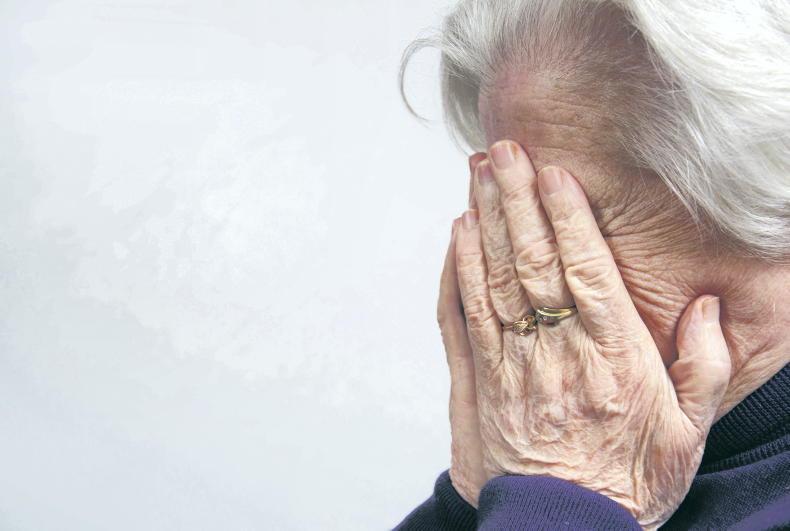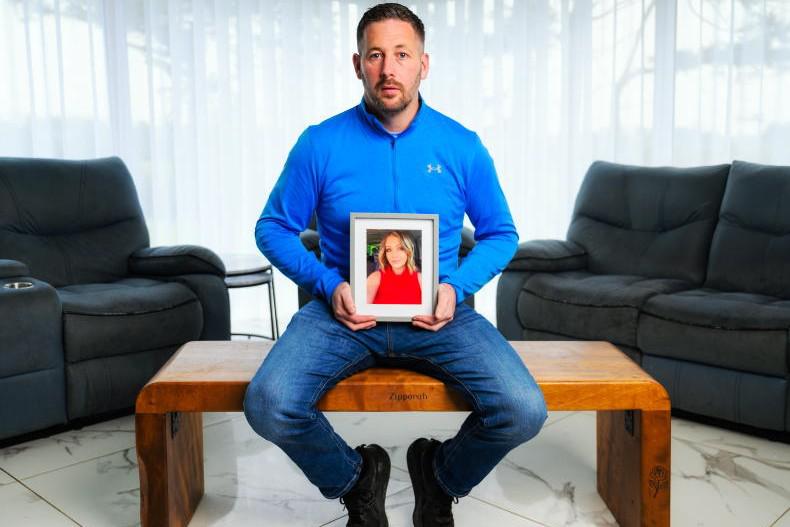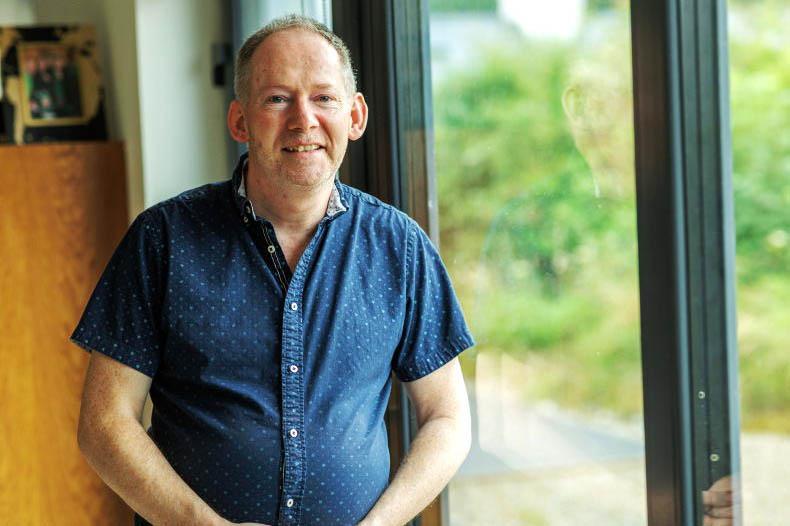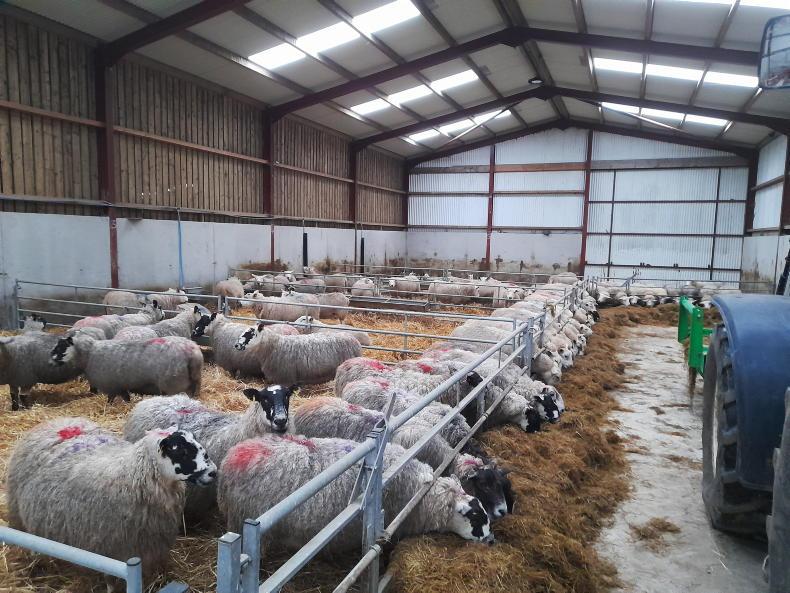In Ireland, approximately 335,000 people of all ages and genders are family carers. More often than not it is a seamless and hidden function that family members take on without any training and in many cases without expectation.
This can become the situation due to an unexpected life event such as a challenging illness – mental or physical – or an accident.
A question that needs to be asked is – who cares for the carer?
While the family bond will be strong, the responsibility can be overwhelming. And the reality of caring for someone with a mental health issue such as depression, schizophrenia or an eating disorder is different to a physical health issues such as a heart condition. Saying that is in no way suggesting that the life of being a carer is any less onerous in either scenario.
Carer wellbeing
It is a well-documented metaphor; the oxygen mask descending in front of you when in flight. We know that the first thing you must do is put it on yourself. By helping yourself, you can help the person beside you.
I also like the following warning message: “flood the car with fuel, stop the engine, flood the body with stress, the body stops”.
If that is the experience, it is most likely that a person may feel like they are at a breaking point. At such a point in-time or feeling, it is important that the family carer makes time for self-care. It is not being selfish.
A practical starting point – time for you
There are many things you can do but taking that first step as a carer, when you are not used to thinking about yourself, can be difficult. Find the confidence to make that first move knowing that it is in your own best interest.
Make time for small regular breaks, have the cup of tea and biscuit.
Read: if you are not a member of your local library consider joining it online and using the many facilities offered including; Borrow Box, audio books and podcasts. Breathe: Make a habit of breathing in for three, hold for four and out for seven. There are a number of short mediations on Mental Health Ireland's Farming Resilience page. They are deliberately short.
Talk: It is in the nature of Irish people to have a chat, however we can be reluctant to start a chat about how we are actually feeling and coping. Give it a try, when someone you trust does ask “how are you?”, “how are things?” or ”how are you coping?” Or instigate the conversation yourself with other family members, relatives or friends you can trust. It is a barrier worth getting over. There are a number of helplines such as:
• The Samaritans, freephone 24 hours 116123.
• Family Carers Ireland, freephone careline 1800 24 07 24.
• Your Mental Health Information line, freephone 1800 111 888.
• National Counselling Service, 1800 47 47 77 (Wednesday to Sunday 6.00pm-10.00pm).
• 50808: Text About It, a free 24/7 text service, providing everything from a calming chat to immediate support for people going through a mental health or emotional crisis – big or small.
Consider saving a couple of these numbers into your phone or computer or scribble them down on a piece of paper and have it ready for easy access.
There can be family disruption supporting someone with a mental health challenge. Naturally, it can be difficult for young family members to understand what is happening when a relative is dealing with a mental health challenge. It is every bit as important to have a chat with them about the mental health challenge in the same way as if you had to explain a heart condition or cancer. Such conversations, although difficult, will allow for better understanding and compassion.
• Barnardo’s offers support to children affected by adverse childhood experiences – call save 1850 222 300 or 01 453 0355.
• Spun Out has a feature on its website offering advice for young family members on how to cope when a parent has a mental health problem.
Small steps lead to welcome change?
Mental Health Ireland, in partnership with Family Carers Ireland, co-produced and developed a five-week programme called Mental Health & Family Caring: Supporting the Supporters.
Its aim is to support families to look after their own wellbeing while caring for a person living with a mental health challenge.
The organisations – together with participant’s – co-produced a booklet which is free to download.
The above programme is being made available through Recovery Colleges. For dates and to register, click here.
More often than not I believe that less is more in life, and that the little wins are invaluable. Small steps can lead to welcome change.
In Ireland, approximately 335,000 people of all ages and genders are family carers. More often than not it is a seamless and hidden function that family members take on without any training and in many cases without expectation.
This can become the situation due to an unexpected life event such as a challenging illness – mental or physical – or an accident.
A question that needs to be asked is – who cares for the carer?
While the family bond will be strong, the responsibility can be overwhelming. And the reality of caring for someone with a mental health issue such as depression, schizophrenia or an eating disorder is different to a physical health issues such as a heart condition. Saying that is in no way suggesting that the life of being a carer is any less onerous in either scenario.
Carer wellbeing
It is a well-documented metaphor; the oxygen mask descending in front of you when in flight. We know that the first thing you must do is put it on yourself. By helping yourself, you can help the person beside you.
I also like the following warning message: “flood the car with fuel, stop the engine, flood the body with stress, the body stops”.
If that is the experience, it is most likely that a person may feel like they are at a breaking point. At such a point in-time or feeling, it is important that the family carer makes time for self-care. It is not being selfish.
A practical starting point – time for you
There are many things you can do but taking that first step as a carer, when you are not used to thinking about yourself, can be difficult. Find the confidence to make that first move knowing that it is in your own best interest.
Make time for small regular breaks, have the cup of tea and biscuit.
Read: if you are not a member of your local library consider joining it online and using the many facilities offered including; Borrow Box, audio books and podcasts. Breathe: Make a habit of breathing in for three, hold for four and out for seven. There are a number of short mediations on Mental Health Ireland's Farming Resilience page. They are deliberately short.
Talk: It is in the nature of Irish people to have a chat, however we can be reluctant to start a chat about how we are actually feeling and coping. Give it a try, when someone you trust does ask “how are you?”, “how are things?” or ”how are you coping?” Or instigate the conversation yourself with other family members, relatives or friends you can trust. It is a barrier worth getting over. There are a number of helplines such as:
• The Samaritans, freephone 24 hours 116123.
• Family Carers Ireland, freephone careline 1800 24 07 24.
• Your Mental Health Information line, freephone 1800 111 888.
• National Counselling Service, 1800 47 47 77 (Wednesday to Sunday 6.00pm-10.00pm).
• 50808: Text About It, a free 24/7 text service, providing everything from a calming chat to immediate support for people going through a mental health or emotional crisis – big or small.
Consider saving a couple of these numbers into your phone or computer or scribble them down on a piece of paper and have it ready for easy access.
There can be family disruption supporting someone with a mental health challenge. Naturally, it can be difficult for young family members to understand what is happening when a relative is dealing with a mental health challenge. It is every bit as important to have a chat with them about the mental health challenge in the same way as if you had to explain a heart condition or cancer. Such conversations, although difficult, will allow for better understanding and compassion.
• Barnardo’s offers support to children affected by adverse childhood experiences – call save 1850 222 300 or 01 453 0355.
• Spun Out has a feature on its website offering advice for young family members on how to cope when a parent has a mental health problem.
Small steps lead to welcome change?
Mental Health Ireland, in partnership with Family Carers Ireland, co-produced and developed a five-week programme called Mental Health & Family Caring: Supporting the Supporters.
Its aim is to support families to look after their own wellbeing while caring for a person living with a mental health challenge.
The organisations – together with participant’s – co-produced a booklet which is free to download.
The above programme is being made available through Recovery Colleges. For dates and to register, click here.
More often than not I believe that less is more in life, and that the little wins are invaluable. Small steps can lead to welcome change.









SHARING OPTIONS